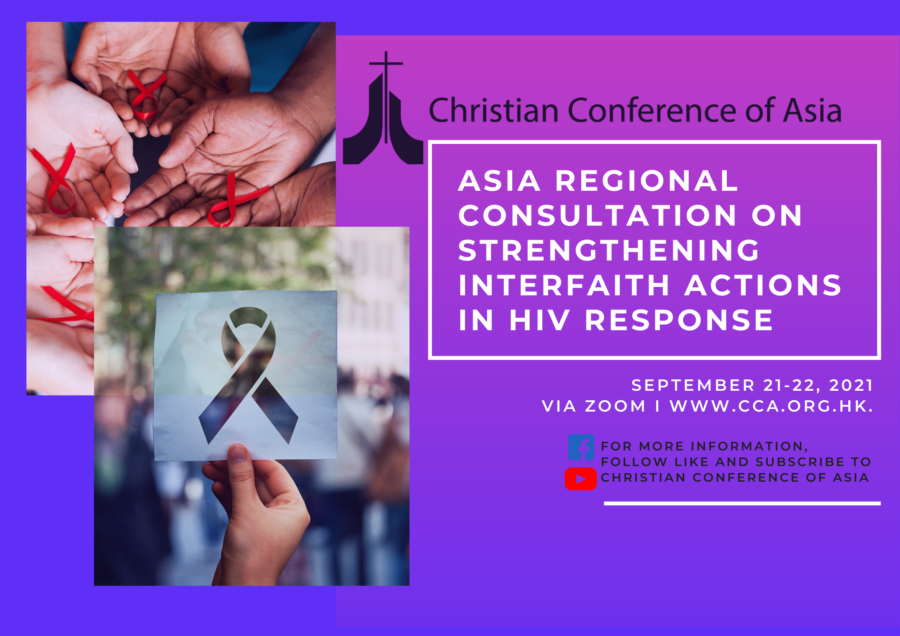CCA opens applications for virtual Asia Regional Consultation on ‘Strengthening Interfaith Actions in HIV Response’

The Christian Conference of Asia (CCA) invites applications to a two-day online regional consultation on strengthening interfaith actions in HIV response in Asia to be held on 21–22 September 2021.
Applications are open to representatives of interfaith organisations and individuals who are engaged or willing to be part of the advocacy in combating HIV and AIDS. Participation in the consultation will be limited to 40 participants.
Given the prevalence and integration of religion and society, especially in Asia, the faith of most people shapes their perceptions of themselves and others; conditioning how they respond to their neighbours. This extends to the nature of interactions with people living with HIV – the majority of whom are themselves members of a faith community.
Faith-based organisations (FBOs) have historically played an important role in delivering health and social services. The networking and leadership capacities of FBOs represent a strong potential asset if used as part of a comprehensive response to HIV and AIDS, nationally, regionally, and globally. The capacity of FBOs to deliver care, treatment, and support in most rural areas and in the poorest neighbourhoods should be maximised. The work that faith-based communities and organisations do is essential in confronting the HIV epidemic with a sustainable and efficient response.
The CCA has organised and been involved in different interfaith initiatives across the region with special focus on interfaith initiatives in responding to HIV issues.
The upcoming virtual Asia Regional Consultation on ‘Strengthening Interfaith Actions in HIV Response’ will be a platform to define common strategies on the role of faith and faith-based institutions in responding to HIV and AIDS including prevention, promotion of health, reduction of stigma and discrimination, enhancement of care, support, and advocacy at all levels, and revitalisation of regional and national interfaith organisations and networks in Asia.
The deadline for receiving applications is 10 September 2021.
For the application form and the concept note, please download the documents below:











